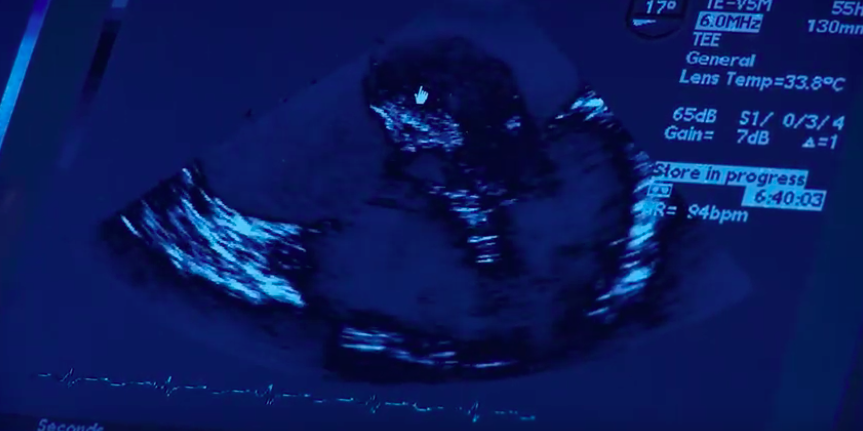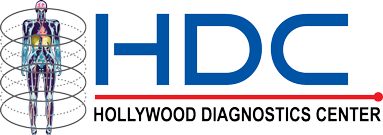 An echocardiogram is an ultrasound of the heart. It uses sound waves to produce the images.The imaging enables your healthcare provider to examine heart valves, determine the size of your heart, and assess how well the heart functioning. It can estimate how forcefully your heart is pumping blood and can detect areas of the heart wall that have been injured by a previous heart attack or some other cause.
An echocardiogram is an ultrasound of the heart. It uses sound waves to produce the images.The imaging enables your healthcare provider to examine heart valves, determine the size of your heart, and assess how well the heart functioning. It can estimate how forcefully your heart is pumping blood and can detect areas of the heart wall that have been injured by a previous heart attack or some other cause.
Once all of the imaging sequences have been completed, a Board Certified Radiologist will review the images and provide written results to your referring provider, usually within 72 hours. A digital copy of the echocardiogram can be provided to your health care provider at no cost. Your referring provider will then review the results and a plan for treatment with you.
Depending on what information your doctor needs, you may have one of several types of echocardiograms. Each type of echocardiogram involves few, if any, risks.
Why Are They Done
- To check for problems with the valves or chambers of your heart
- To check if heart problems are the cause of symptoms such as shortness of breath or chest pain
- To detect congenital heart defects before birth
The type of echocardiogram you have depends on the information your doctor needs.
Transthoracic Echocardiograms
In this standard type of echocardiogram:
- A sonographer spreads gel on a transducer
- The sonographer presses the transducer firmly aiming an ultrasound beam through your chest to your heart
- The transducer records the sound wave echoes from your heart
- A computer converts the echoes into moving images on a monitor
If your lungs or ribs block the view, you may need a small amount of an enhancing agent injected through an intravenous (IV) line. The enhancing agent, which is generally safe and well tolerated, will make your heart’s structures show up more clearly on a monitor.
Transesophageal Echocardiograms
If your doctor needs more detailed images or if it is difficult to get a clearer picture of your heart with a standard echocardiogram, your doctor may recommend a transesophageal echocardiogram.
In this type of echo:
- Your throat will be numbed, and you’ll be given medications to help you relax
- A flexible tube containing a transducer is guided down your throat and into the esophagus
- The transducer records the sound wave echoes from your heart
- A computer converts the echoes into detailed moving images of your heart, which your doctor can view on a monitor
Doppler Echocardiograms
Sound waves change pitch when they bounce off blood cells moving through your heart and blood vessels. These changes also called ‘Doppler signals’ can help your doctor measure the speed and direction of the blood flow in your heart.
Doppler techniques are generally used in transthoracic and transesophageal echocardiograms. Doppler techniques can also be used to check blood flow problems and blood pressure in the arteries of your heart, which traditional ultrasound might not detect. The blood flow shown on the monitor is colorized to help your doctor pinpoint any problems.
Stress Echocardiograms
With some heart problems, particularly those involving the arteries that supply blood to your heart muscle (coronary arteries), they occur only during physical activities. Your doctor might recommend a stress echocardiogram to check for coronary artery problems. However, an echocardiogram can’t provide information about any blockages in the heart’s arteries.
In a stress echocardiogram:
- Ultrasound images of your heart are taken before and immediately after you walk on a treadmill or ride a stationary bike
- If you’re unable to exercise, you may get an injection of a medication to make your heart pump as hard as if you were exercising
Hollywood Diagnosticss Center has been recognized as a leader in the medical Diagnosticss field while performing over 30,000 Diagnostics procedures annually. This includes the echocardiograms discussed in this article. The center continues to be at the forefront of medical technology by progressively updating its equipment and procedures to reflect the latest advances in medicine. HDC is your complete, one source provider of all Diagnostics services.
If you require for any reasons an MRI, a PET Scan, a mammogram, ultrasounds of any kind, an EKG or even a bone density scan, this is the center that can take care of all of those tests and needs and more. You can even request an appointment by clicking RIGHT HERE!
